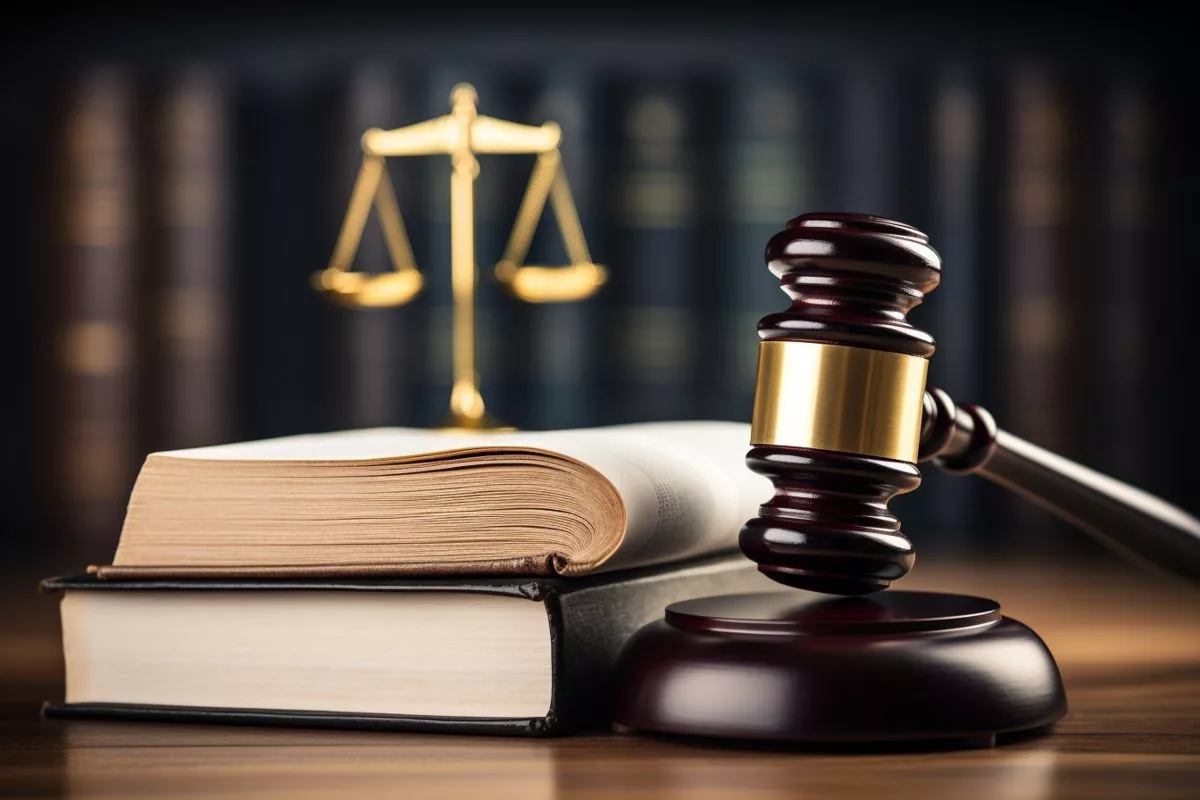President Ramaphosa has appointed esteemed judges to enhance the High Court Divisions across South Africa, aligning with the mandates of the constitution. This move reflects his commitment to uphold justice and the strength of the legal system. The article provides details on the newly appointed judges and their roles in different courts, heralding a promising era for the nation’s judiciary.
What is President Ramaphosa’s Judicial Revamp about?
President Ramaphosa has appointed highly-regarded judges to enhance the High Court Divisions across South Africa, aligning with the mandates of Section 174(6) of the South African Constitution. The appointments fulfill the urgent need to address existing vacancies and reflect his unwavering commitment to uphold justice, transparency, and the strength of the legal system. The article provides details on the newly appointed judges and their roles in different courts.
A New Dawn for South Africa’s Courts
In an essential shift to reinforce the judiciary’s foundation, Cyril Ramaphosa, President of South Africa, has adeptly utilized his constitutional prerogatives. Tapping into the reservoir of legal talent, he has selected highly-regarded judges to enhance the High Court Divisions across the nation. This strategic move, aligning with the mandates of Section 174(6) of the South African Constitution, reflects his unwavering commitment to uphold justice, transparency, and the strength of the legal system.
The esteemed [Supreme Court of Appeal](https://capetown.today/the-supreme-court-of-appeal-strengthens-south-africas-fight-against-racism/), a cornerstone of legal precedent in South Africa, now proudly counts Justices Fayeeza Kathree-Setiloane and Anna Maleshane Kgoele among its ranks. Commencing their tenure in December 2023, these appointments fulfill the urgent need to address existing vacancies. The inclusion of these experienced legal professionals forecasts a promising era for the nation’s second-highest court.
Shifting the focus to Gauteng, South Africa’s economic powerhouse, a quartet of legal expertise emerges with the inductions of Advocates Soraya Khatija Hassim SC, Omphemetse Mooki SC, Jacobus Johannes Strijdom SC, and Brad Christopher Wanless SC. As they embrace their new roles in January 2024, their vast legal knowledge and experience will significantly benefit the bustling provincial hub.
Judicial Wisdom in KwaZulu-Natal and Strengthening Labor Courts
The KwaZulu-Natal Division of the High Court also heralds the arrival of judicial sagacity with the appointment of Professor Mbuzeni Johnson Mathenjwa. As a distinguished academic and legal expert, Professor Mathenjwa is set to begin his service in November 2023, promising to enrich the court with his combined scholarly and applied legal acumen.
In parallel, President Ramaphosa has reinforced the leadership within the Labour and Labour Appeal Courts. The elevation of Mr. Justice Mogomotsi Edwin Molahlehi to Deputy Judge President underscores the administration’s focus on a judiciary that adeptly navigates the complexities of labor disputes. This role is critical for the fair dispensation of labor justice and reflects the President’s foresight in creating a judiciary attuned to the nuances of labor relations.
The Labour Appeal Court, instrumental in unraveling intricate labor disputes, will gain from the seasoned perspectives of Madam Justice Madeline Portia Nkutha-Nkontwana, Madam Justice Katherine Mary Savage, and Mr. Justice André Johann Van Niekerk. With their appointments set for January 2024, they are expected to fortify the court’s ability to arbitrate labor matters equitably.
Furthermore, the Labour Court will welcome the innovative viewpoints of Advocates Kelsey Allen-Yaman, Reynaud Neil Daniels, and Molatelo Robert Makhura. These legal professionals will redirect their extensive practice experience into judicious labor adjudication, with their service commencing from December 2023 and January 2024.
Expanding on the Judicial Narrative
To develop this article into a comprehensive analysis exceeding 700 words, further exploration of the following facets is recommended:
- Delve into the background of the South African judicial system, elucidating its structure and the significance of each court.
- Compile mini-biographies for the newly appointed judges, underscoring their legal journeys, landmark cases, and unique contributions to the field of law.
- Examine the potential ramifications these judicial appointments may impose on the legal landscape and the broader South African society.
- Engage in a discourse on the necessity of a diverse and autonomous judiciary, as well as the challenges these incoming judges might confront.
- Offer an insightful overview of the judge appointment protocol, detailing the Judicial Service Commission’s influence and the President’s collaborations with pertinent entities.
By maintaining a sophisticated yet approachable tone, interspersed with relatable anecdotes and clear illustrations of these judicial changes, the article can effectively communicate the profound significance of President Ramaphosa’s appointments to the legal fabric of South Africa.
What is Section 174(6) of the South African Constitution?
Section 174(6) of the South African Constitution mandates the judiciary to reflect broadly the racial and gender composition of South Africa. This section ensures that the judiciary is diverse, autonomous, and impartial, catering to the legal needs of all citizens irrespective of their race, gender, or social status.
What is the significance of the Supreme Court of Appeal in South Africa?
The Supreme Court of Appeal is the second-highest court in South Africa, providing an authoritative and final ruling on legal disputes. It has the power to overturn decisions made by lower courts and is a cornerstone of legal precedent in South Africa. Having respected legal professionals like Justices Fayeeza Kathree-Setiloane and Anna Maleshane Kgoele appointed to the court reinforces its standing in the South African legal system.
Why are the appointments of Advocates Soraya Khatija Hassim SC, Omphemetse Mooki SC, Jacobus Johannes Strijdom SC, and Brad Christopher Wanless SC important for Gauteng?
Gauteng is South Africa’s economic powerhouse, with a high concentration of businesses and a diverse population. The appointments of Advocates Soraya Khatija Hassim SC, Omphemetse Mooki SC, Jacobus Johannes Strijdom SC, and Brad Christopher Wanless SC will significantly benefit the province, as they bring with them vast legal knowledge and experience. Their legal expertise will help resolve complex legal disputes and promote justice in Gauteng.
Who is Professor Mbuzeni Johnson Mathenjwa?
Professor Mbuzeni Johnson Mathenjwa is a distinguished academic and legal expert. His appointment to the KwaZulu-Natal Division of the High Court will enrich the court with his combined scholarly and applied legal acumen. Professor Mathenjwa’s expertise will help improve the court’s ability to adjudicate legal disputes fairly and transparently.
Why is the role of Deputy Judge President important for the Labor and Labor Appeal Courts?
The Deputy Judge President oversees the administration of the court’s operations, including the allocation of cases, assignment of judges, and management of court personnel. The role is crucial for the Labor and Labor Appeal Courts as it ensures the fair and efficient dispensation of labor justice. Mr. Justice Mogomotsi Edwin Molahlehi’s appointment to this position underscores President Ramaphosa’s commitment to creating a judiciary that adeptly navigates the complexities of labor disputes.
What is the significance of Madam Justice Madeline Portia Nkutha-Nkontwana, Madam Justice Katherine Mary Savage, and Mr. Justice André Johann Van Niekerk’s appointments to the Labor Appeal Court?
The Labor Appeal Court is instrumental in unraveling intricate labor disputes. The appointments of Madam Justice Madeline Portia Nkutha-Nkontwana, Madam Justice Katherine Mary Savage, and Mr. Justice André Johann Van Niekerk will significantly benefit the court’s ability to arbitrate labor matters equitably. With their seasoned perspectives and legal expertise, they will ensure that the Labor Appeal Court provides fair and just rulings in labor disputes.
Who are Advocates Kelsey Allen-Yaman, Reynaud Neil Daniels, and Molatelo Robert Makhura?
Advocates Kelsey Allen-Yaman, Reynaud Neil Daniels, and Molatelo Robert Makhura are legal professionals with extensive practice experience. Their appointment to the Labor Court will redirect their legal expertise into judicious labor adjudication. Their insights and innovative viewpoints will significantly benefit the Labor Court, ensuring that labor disputes are adjudicated fairly and transparently.
What is the Judicial Service Commission?
The Judicial Service Commission is a constitutional body mandated to select, appoint, promote, and transfer judges and magistrates in South Africa. It comprises 23 members, including judges, legal professionals, and politicians. The President collaborates with the Judicial Service Commission when making judicial appointments, ensuring that the judiciary remains independent, impartial, and reflective of the country’s diversity.








